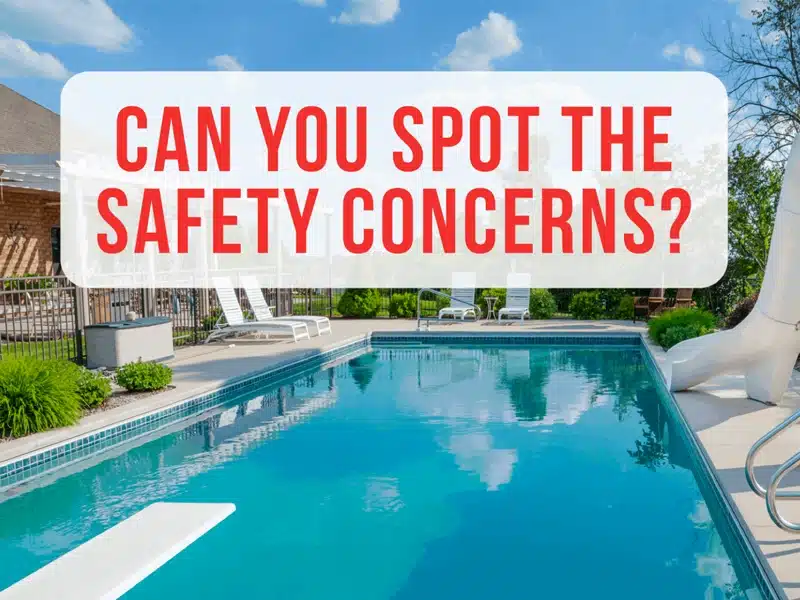Do I Need to Change Insurance if I Short-Term Rent My Home?
As a property owner, choosing to venture into the short-term rental business can be exciting. It can also be overwhelming as it introduces a new set of considerations for your property, specifically in terms of insurance coverage.
One of the first questions that people entering the short-term rental industry should have is, “Do I need to change my insurance if I short-term rent my property?”
If you’re hoping for a simple yes or no answer, it’s a bit more complex than that. The answer largely depends on your specific scenario and the type of risks you’re willing to take. The purpose of this blog is to guide you through the complexities of insurance for short-term rentals to help you make an informed decision.
If you’d rather talk through this on the phone instead of reading our blog, our agents at Proper Insurance are knowledgeable experts in the short-term rental industry and are happy to discuss your unique scenario and insurance needs. Please give us a call at 888-631-6680 or get a quote.
Our goal is to ensure you have the right coverage for your specific situation. Let’s start off by understanding the very basics of property insurance.

Understanding Insurance Basics
At its core, the purpose of insurance is simply the transfer of risk. It’s a safeguard against the unknown; a protective measure to ensure that in the event of an incident, you’re not left to shoulder the financial burden alone.
This becomes particularly important when discussing the risks associated with a short-term rental business.
Not only are there the regular risks of owning a home but there’s also the increased risk associated with owning a business to consider. These risks include liability if a guest gets injured, damages to your property or its contents, loss of rental revenue due to unexpected events like bed bugs, natural disasters, and more.
Breaking Down Property Insurance into the “Rule of Three”
To make sense of insurance for short-term rental properties, we’ll use what’s called “The Rule of Three,” a principle that simplifies property insurance options into three primary categories based on the home’s occupancy and exposure.
There are three types of insurance offered for properties:
- Homeowner’s (HO): Designed for primary residences.
- Dwelling/Landlord Policy (DP): Designed for landlords of long-term rentals.
- Commercial Policy/Commercial General Liability (CP/CGL): Designed for commercial properties and businesses. (Remember that short-term rentals that generate revenue are legally considered a business.)
Each of the above insurance types also have their own tier of coverage to select from:
- Basic: Provides coverage for 11 perils (risks) outlined specifically in your policy. This is the least amount of coverage you can purchase.
- Broad: Provides coverage for 16 perils (risks) that are specifically outlined in your policy. This offers the insured a little more coverage.
- Special: Provides coverage for all risks (perils) unless they are specifically outlined as “excluded” from the policy. This is the best coverage available because unless something is listed as excluded in the policy, the insured will be covered for it.
There are also different types of liability coverage to understand:
- Personal liability coverage: Protects the insured against lawsuits related to bodily injury or property damage caused by the owner or their family members. This follows the insured wherever they go but is restricted to personal acts (think: running over someone’s toe with a shopping cart at the grocery store).
- Premise liability coverage: Protects the insured against lawsuits related to bodily injury or property damage that occurs on the insured’s property (think: tenant falls off a deck due to a loose handrail).
- Commercial liability coverage: Protects the insured against lawsuits related to business operations and for lawsuits related to any on-premises amenities like pool, hot tub, etc. or amenities that take guests off-premises like golfcarts, bicycles, kayaks, etc. (think: a guest gets bit by a dog while walking through the neighborhood of your Airbnb).
Navigating Short-Term Rental Scenarios & Insurance Options
Circling back to our initial question, “Do I need to change insurance if I short-term rent my property,” it mainly boils down to if the property is a primary home or solely a vacation rental property.
Let’s explore traditional short-term rental scenarios so that we can explain your insurance options and outline coverage gaps to consider.
1. Primary Home + Short-Term Renting a Room
When it comes to short-term renting a room in your primary residence, the insurance implications can be quite complex. You’re not just a homeowner now; you also fall into the category of a landlord, just with many short-term lease agreements rather than one long-term agreement. This dual role of a room sharing host can impact your coverage under a standard Homeowners insurance policy.
Short term rental activities introduce a new set of risks that may not be covered under a standard Homeowners or Landlord policy. For instance, if a guest injures themselves within your property, standard Homeowners insurance may not provide the necessary liability coverage since it typically excludes coverage related to business activity.
Coverage gap considerations when adding a home-sharing endorsement for a room
To address some of the liability gaps in a Homeowners policy, you can add what’s known as a “home sharing endorsement” to the policy. This enhancement expands the coverage to include some risks that are associated with short-term renting at your primary residence.
While a home-sharing endorsement can provide some added protection for short-term rental hosts, it’s important to be aware of its limitations. Typically, these endorsements have limitations on the number of days per year you can rent out your property and/or the amount of income you are able to generate. If you exceed the set limits for days or income, your insurance coverage could be completely void.
Additionally, a home sharing endorsement may not cover scenarios such as vandalism or theft by a guest since you entrusted your property to them by allowing the guest into your home. A home sharing endorsement also might not provide business income coverage, which could be vital if a covered loss makes your rental uninhabitable/unable to be rented and leads to a loss of rental income.
While a home sharing endorsement is better than no additional coverage at all, it is unikely to provide the full protection needed for this type of short-term rental operation. Home sharing insurance endorsements are weak coverage at best.
2. Primary Home + Short-Term Renting an Accessory Dwelling Unit (ADU)
Renting out an Accessory Dwelling Unit (ADU), such as a guest house or a converted garage, on the same property as your primary home presents its own unique insurance challenges. The dual nature of your property — part primary residence, part rental property — necessitates careful consideration of your coverage.
Since this is your primary home you likely already have a Homeowners (HO) insurance policy. However, given that the ADU is a separate structure you will be short-term renting, you may need to adapt your HO coverage to include it. This is where the concept of “Other Structures Protection” comes into play. It extends your HO coverage to other buildings on your property, such as your ADU.
However, this standard Homeowners coverage may not fully cover risks associated with short-term rentals in your ADU. For instance, if a paying guest who is staying in your ADU accidentally starts a fire, the damages may not be covered under a standard HO policy because the incident arose from a business activity — in this case, a short-term rental business.
Coverage gap considerations when adding a home sharing endorsement for an ADU
To address these gaps, you can add a home sharing insurance endorsement to your Homeowners policy. This endorsement expands your coverage to include some risks associated with short-term rentals.
However not all insurance companies offer home-sharing endorsements for ADUs. In some cases, you may need to consider a Dwelling/Landlord Policy (DP) or a Commercial Policy (CP). The choice you have here ultimately depends on the extent of exposure and occupancy of your specific situation.
3. Primary Home + Renting the Entire Home
Turning your primary residence into a vacation rental when you’re away presents another unique scenario. Unlike the previous situations where your home still serves as your primary home, here, your entire home is rented out for short periods. This changes the nature of the risks involved and, therefore, the insurance coverage you need.
In this case, since your primary residence is also being used for business activity — i.e., short-term rentals while you’re away from the home — your standard Homeowners policy likely does not provide coverage. You will need to either add a homesharing endorsement to your Homeowners policy or better yet, upgrade to a Commercial policy that also covers your property as a primary home like the policy offered by Proper Insurance.
Coverage gap considerations when adding a home sharing endorsement for your primary home
If you’re occasionally renting out your home an endorsement or enhancement (also known as a rider) to your existing Homeowners policy might suffice but still has its limitations. This is often referred to as a home-sharing endorsement, which extends your coverage to include some risks associated with short-term rentals.
Please note: The home-share endorsements are meant for primary residence, not a second home that you sometimes/occasionally reside at. Some of these limitations commonly seen are only $2500 for coverage to “landlord furnishings,” limited coverage around loss of rents/business income, and little to no coverage around offered amenities.
Primary Home + Short-Term Rental Insurance Takeaways
If you’re renting out your entire home, then home-sharing endorsement on your Homeowners policy may suffice or even better, a Commercial policy like the one offered by Proper Insurance would be more suitable. The more frequently you short-term rent your property, the more suitable a Commercial policy becomes.
Take the case of a property owner who was able to work remotely from anywhere in the world and decides to short-term rent their home on a frequent basis. Although a short-term rental endorsement may provide some coverage, their limitations leave this type of property owner highly exposed.
In most cases, the special form Commercial policy, like the one offered by Proper Insurance, is recommended for properties being used as short-term rentals. Proper Insurance offers the most comprehensive coverage, covering virtually all perils (risks) unless they’re specifically excluded. This policy also includes commercial liability coverage, which extends beyond your property line and covers incidents that may occur as a result of your short-term rental business operations and includes custom coverages to address unique challenges like bed bugs, squatters, liquor liability, and more.
4. Second Home/Investment Property Short-Term Rental
When you’re renting out your second home or an investment property as a vacation rental, your insurance options are quite different from those for your primary residence. This is because your investment home is used for business purposes – i.e., short-term rentals – and does not serve as your primary home, the place you live and receive your mail. Therefore, your options are a Dwelling/Landlord policy or a Commercial policy.
Short-term renting occasionally or intermittently
If your second home/investment property is occasionally rented out, a Dwelling/Landlord policy with a short-term rental enhancement might be sufficient if you’re able to accept its limitations. Remember that with a Dwelling/Landlord policy, you only get premises liability, which limits coverage to incidents within your property line and provides limited coverage (if any) for damage, theft or vandalism caused by guests.
Short-term renting frequently
If your second home is frequently rented out, a Commercial policy like the one offered by Proper Insurance is best for this scenario. A Commercial policy with Special Risk Coverage covers virtually all risks unless they’re specifically excluded. A Commercial policy includes Commercial Liability Coverage which extends beyond your property line and covers incidents that may occur as a result of your short-term rental business operation.
Short-term renting only during peak seasons
In some regions we see people offer a property as a long-term rental in the off-season, a short-term rental in peak seasons, as well as having vacant periods during the shoulder months. This situation is all too common for property owners of second homes in travel destinations such as ski resort towns, summer lake towns, etc.
Where things become complicated in insurance language is how they cover a mix of occupancies throughout the policy period (short-term rental during peak season, with mid-term stays during shoulder seasons, and in many cases period of vacancy during off-season). This unclarity around coverage during varying occupancy types can result in unforeseen reductions in coverage.
This is where the Proper Insurance policy shines as our policy does not have occupancy restrictions, meaning many standard policies limit or void coverage due to change of use (short-term, mid-term or long-term rentals or vacant periods), while ours does not.
5. Short-Term Renting Multiple Properties
If you own and rent out multiple properties as vacation rentals, your insurance needs become more complex. Each property presents its own unique risks and considerations.
For owners of multiple vacation rental properties, a Commercial policy like the one offered by Proper Insurance is the most appropriate choice. Proper Insurance’s policy was designed specifically for short-term rental properties and the risks they present.
The Proper Insurance policy has the most comprehensive coverage available on the market. It extends beyond your property line and covers incidents that may occur as a result of your short-term rental business operations, like if a guest were to get in a bicycle accident on a bike you provided or drown in the lake of your waterfront property.
6. Rental Arbitrage: Don’t Own the Property
Rental arbitrage goes by several different names (lease arbitrage, short-term rental arbitrage, Airbnb arbitrage, apartment arbitrage, re-rent and more) but the concept is straightforward, an individual or entity rents a property long-term and then re-rents or sublets that property on a short-term basis on booking platforms like Airbnb or Vrbo.
With several parties involved (the re-renter, the landlord, and the guest) it’s important to be adequately insured. Proper Insurance provides the most comprehensive coverage available for rental arbitration.
Factors to Consider for Short-Term Rental Insurance Needs
All in all, getting the appropriate insurance for your short-term vacation rental situation requires careful consideration of various factors like:
- Frequency: Are there limits to the days you can short-term rent? Do you want to meticulously keep track of the days you’re able to short-term rent in a calendar year so that your insurance policy doesn’t become void?
- Income: Are there limits to the amount of income you generate? Do you want to limit the income you generate by your short-term rental so your policy doesn’t become void?
- Specific Risks Involved: Are you a waterfront property? Do you provide amenities? Are you in a high crime area? Do you want coverage if a guest drowns at your lakefront property? Do you want coverage if a guest falls off of the bike you provided? Do you want coverage if a guest gets assaulted while walking in your community?
- Level of Coverage: Do you want the least amount of coverage available or the most? Do you want coverage for the items inside your home? Do you want liability coverage to extend off your property line? Do you want coverage if a guest burns down your neighbor’s house with a firework? Do you want coverage if a guest throws a massive party inside your home resulting in damage to your furnishings, flooring, and walls?
- Cost: What are you willing to pay for the coverage you want? Remember, insurance premiums are based on risk so a lower cost for insurance means less coverage.
Proper Insurance provides free coverage comparisons so you can fully understand the risks associated with your unique scenario and ensure you have the best possible coverage for your short-term rental business. Give us a call at 888-631-6680 or get a quote.
Why Standard Homeowners and Landlord Policies Fall Short for Short-Term Rentals
As we’ve outlined, traditional Homeowners policies are designed to cover personal residences and Dwelling/Landlord policies are designed to cover long-term rentals. When a property is used for short-term rentals, it straddles the line between a personal residence and a commercial operation, introducing massive coverage gaps for the insured.
Simply put, these standard insurance policies were never intended to cover the range of risks associated with the business of a vacation rental (think: guest steals your kitchen appliances) as well as the risks associated with the property (think: tree falls on your house). Even if you add a short-term rental endorsement, also known as a rider, there are still key areas where these policies fall short.
Here are some areas that a Homeowners or Landlord policy may fail to fully protect your short-term rental business even with an short-term rental rider or endorsement:
Limited Business Activity Coverage
Standard policies typically exclude or limit coverage for business activities. Short-term rentals are considered a business activity, hence any damages or liabilities from it may not be covered. In fact, since this is a contractual exclusion, by operating a business at your home anytime during the policy year, you are directly violating this contract and therefore give your carrier the right to deny any claim.
Insufficient Liability Coverage
While most policy’s cover slip and falls, there are many situations that are often excluded. In fact, your liability coverage in a standard Homeowners or Landlord policy may have so many exclusions that it would not cover many of the risks associated with short-term renting (think: dog bite, invasion of privacy, etc.). This means that the policy would not respond at all, leaving you to carry the burden of legal fees and settlement costs. This is why it’s important to understand the unique risks of your short-term rental property and make sure these risks are not excluded from your policy’s liability coverage.
Inadequate Liability Limits
Your policy may have an insufficient limit of insurance (the most you will be paid by the insurer in the event of a covered cause). This means that even if the situation is covered by your policy, your limit of insurance still may not be high enough to address the financial burden that the lawsuit brings. For example, the policy may only provide a liability limit of $300,000 but in the short-term rental industry we often see claims approach, and sometimes surpass, $1million. That’s why Proper insurance policy comes standard with $1M, with the option to have $2M, in liability coverage. In addition, the Proper Insurance policy covers all legal expenses associated with a covered claim at no cost to you.
Exclusions for Damage, Theft or Vandalism by Guests
Standard insurance policies often exclude guest caused theft, vandalism, and intentional or malicious damage because of “property entrustment.” When you hand your keys to a guest you are inviting them into your home and entrusting them with your property, so any theft or damage the guest causes is your responsibility since you handed them the keys.
Lack of Income Protection
Most standard insurance policies don’t offer coverage for lost business income or brokers confuse this coverage with loss of rents or loss of use. If your property were damaged and couldn’t be rented out while repairs were made, you could lose significant rental income.
Lack of Coverage for Special Amenities
If your rental property includes special amenities like bikes or hot tubs for guest use, these may not be covered under a standard policy. Additionally, coverage is usually limited to your property line, meaning if a guest gets injured while using an amenity you provided, you may be responsible for the cost to make them whole (think: hospital bills, lawyer fees, settlement costs, etc.).
No Protection Against Specific Risks
Standard policies do not provide coverage for unique risks associated with short-term rentals, such as bed bug or flea infestations, squatter protection, liquor liability and pet & animal liability.
Proper Insurance is the only option for short-term rental owners that is a one-size-fits-all solution. Proper Insurance offers a unique Commercial Homeowners policy written on a Special Risk Form — meaning you have the maximum protection available on the market for your short-term rental property, business, and liability.
Upgrade to Proper Insurance for Your Short-Term Rental Insurance Needs
Proper Insurance is a leader in the short-term vacation rental insurance market, having developed a specialty insurance policy that covers both business use and personal use of your property.
This policy not only provides comprehensive protection against common exposures like liability, property damage, and loss of revenue, but it also includes enhancements tailored specifically for the needs of short-term rental owners like coverage for bed bugs/fleas, squatters, and guest theft/damage.
The best time to review your insurance policy is now. Don’t wait until an incident occurs to find out you’re not adequately covered. Reach out to Proper Insurance today for a complementary coverage comparison.





